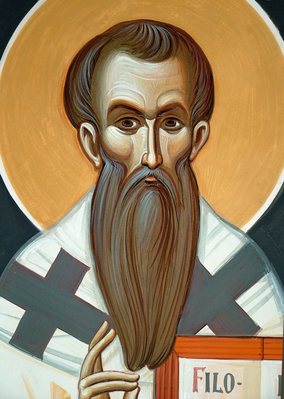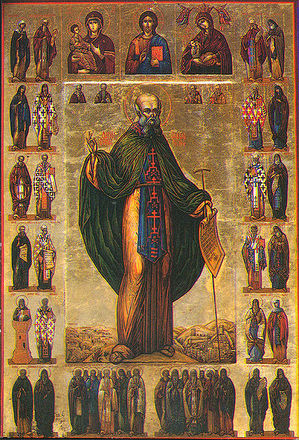Since it is impossible to be saved unless we perform our works in accordance with the commandment of God, and since we disregard none of the commandments without peril — for it is a terrible arrogance to set ourselves up as the critics of our Lawgiver, now approving some of his laws, now dismissing others — let us who are combatants for piety and who esteem the life of tranquility and freedom from affairs as our collaborator in the keeping of the Gospel decrees, set before ourselves a common mind and purpose: that not so much of a single one of the commandments escape us. For if the man of God must be perfect — as it is written and as our earlier discourse on these matters has shown — it is entirely necessary that he be pruned. (cf. John 15:1) by every one of the commandments unto the measure of the stature of the fullness of Christ (Eph. 4:13); for according to the divine law a beast with a blemish even though clean, was unacceptable as a sacrifice to God (cf. Lev. 21. 19-20).
Saint Basil (329/30-379) was the bishop in what is modern Turkey in a city called Casesarea Mazaca in Cappadocia. Basil was attentive the needs of the poor and he is famous for for us rule for monasteries that focussed on the common life, the sacred liturgy and manual labor. Saint Benedict used Basil’s rule as one of a few for his own rule for monasteries. Basil is called the “revealer of heavenly mysteries.” Together with Gregory of Nyssa and Gregory of Nazianzus is known as the Cappadocian Fathers. Saint Basil was a firm supporter of the Nicene Creed and fought heresy.
Let’s pray for hospital administrators today through the intercession of Saint Basil.

